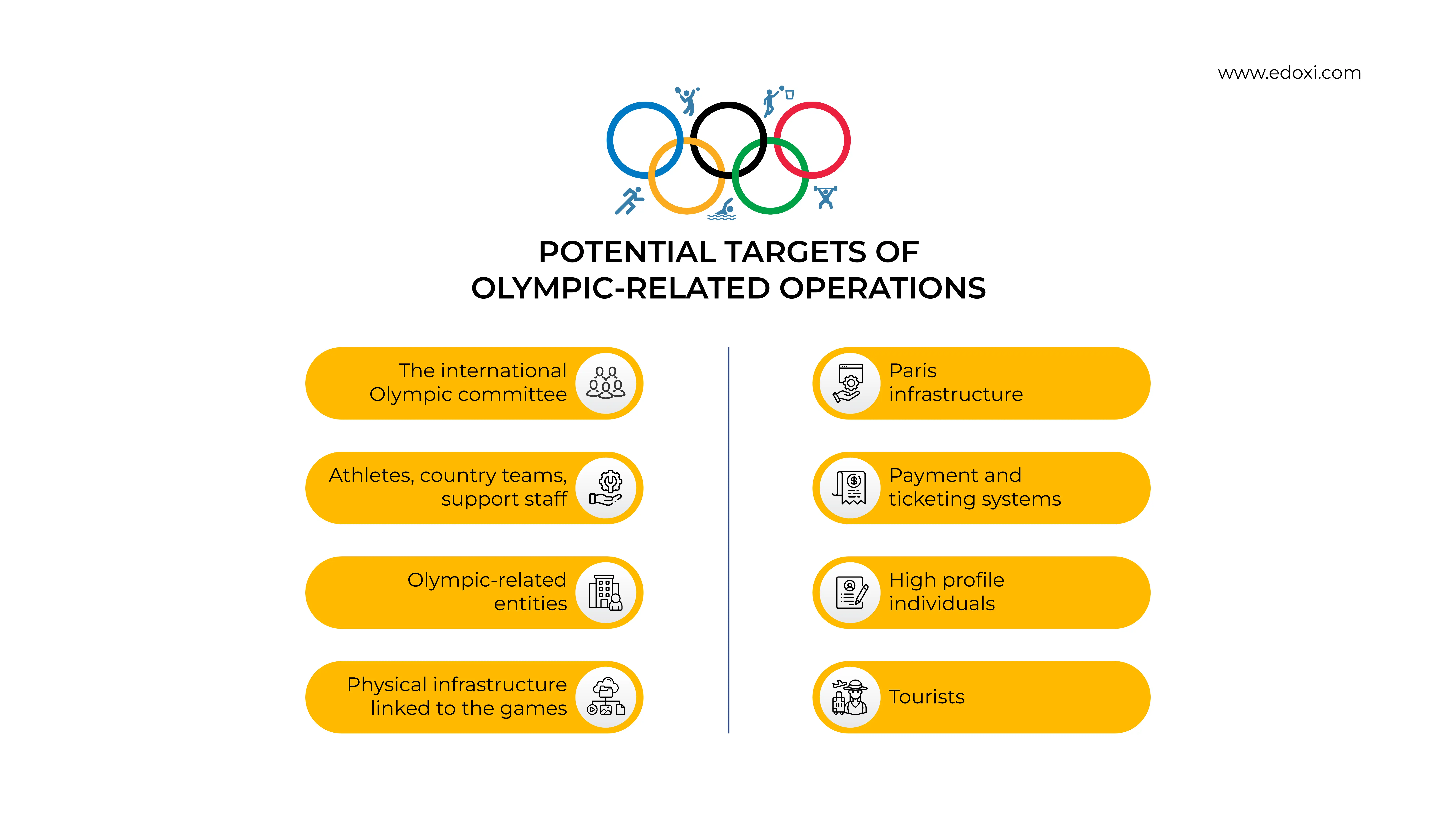 Satendra K
Aug 02, 2024
Satendra K
Aug 02, 2024
.webp)
Are you aware that more than 450 million cyber-attacks are expected during the Paris 2024 Olympics? It's true!
The 2020 Tokyo Olympics saw an estimated 450 million cyberattacks. For the 2024 Paris Olympics, experts predict 8 times more attacks than the Tokyo Olympics, given the advancements in technology and the increased connectivity of devices.
According to the World Economic Forum, the Olympic Games, which opened on 26 July 2024, is expected to sell over 13 million tickets and bring more than 15 million visitors to Paris, generating an estimated €11 billion in economic activity in Île-de-France. Experts also warn that ‘the massive ticketing operation and surging commerce, make the Games an attractive target for cyberattacks’.
The Olympic Games represent human achievement and international unity. As games are the primary motive, they also stand as a prime target for cyber threats in today’s network-connected world. “The Games are facing an unprecedented level of threat But we've also done an unprecedented amount of preparation work so I think we're a step ahead of the attackers” said Vincent Strubel, the director general of ANSSI, France’s cybersecurity agency, according to Reuters.
In this 2024 Paris Olympics, cybersecurity experts in France are all set to weather the storm of any kind of digital threat. Nevertheless, let's take a look at the cybersecurity challenges that may arise during the Paris Olympics and solutions for it
Also Read; What is Cyber Attack? Definition and Prevention
The 2024 Olympics in Paris is expected to face a variety of threats, particularly in the realm of cybersecurity. Here are some of the most common Cyber attacks that may emerge during this high-profile event:
An important threat that may be considered is Spoofing Schemes, They are scams that entail attackers using fraud emails or messages to access personal information such as login credentials or credit card numbers. Volunteers have been targeted with suspicious emails impersonating official communications. These emails attempt to lure recipients into providing sensitive information, posing risks of identity theft and account compromise.
Sophisticated methods such as distributed denial-of-service (DDoS) attacks flood network systems with harmful traffic, potentially disrupting Olympic operations. With geopolitical tensions impacting international relations, Russian state-backed hackers are a major concern. Groups like People’s Cyber Army (PCA) and NoName057(16) have already indicated plans for disruptive cyber activities, including DDoS attacks and data compromises.
Cybercriminals exploit the popularity of event-related mobile apps to steal credentials and perpetrate fraud. Cybercriminals take advantage of the popularity of event-related mobile apps to steal credentials and perpetrate fraud. They may create mobile apps similar to legitimate ones used in the Olympics. fraud.org has been identified, posing risks such as ticket fraud and personal data manipulation.
As businesses increase their online presence to take advantage of the Olympic audience, they become prime targets for bot-driven attacks. These bots can carry out various malicious activities, including scraping websites for data theft, launching distributed denial of service (DDoS) attacks to disrupt businesses, and conducting ticket scalping operations to inflate prices and control ticket sales.
Threat actors on the dark web, such as "dank31337", are actively seeking unauthorized access to Olympic systems. They offer substantial sums for tools and credentials aimed at disrupting the event’s operations through phishing and credential theft.
Attackers may create fake accounts and websites to exploit promotional offers, engage in phishing scams, spam legitimate users, or skew platform analytics. These fake accounts can effect user trust and platform integrity.
Read on; Benefits Of Cyber Security Certifications
State-sponsored actors may attempt to gather intelligence by targeting government officials and decision-makers attending the Games. This could involve phishing attacks or malware deployment.
Email spoofing is a significant concern, where attackers impersonate legitimate entities to deceive recipients. Without proper email authentication protocols (like DMARC, SPF, and DKIM), sponsors and partners are at risk of being targeted
Phishing scams are anticipated to surge, leveraging the excitement surrounding the Olympics. Cybercriminals may send emails that appear to be from official Olympic partners, enticing recipients to click on malicious links or provide personal information. These scams could include Fake Ticket Offers (emails promoting last-minute ticket deals that aim to steal credit card details) and Impersonation of Official Websites.
The Olympics' high visibility makes it an attractive target for ransomware attacks aimed at compromising systems for financial gain or disruption.

The Paris 2024 Olympic organisers have implemented comprehensive cybersecurity strategies to effectively address cybersecurity challenges. Here are some of the solutions;
Check out; The Growing Cybersecurity Skills Gap: Recognizing the Need for Action
Despite the variety of Olympics-related cyber threats, the security community is better prepared when compared to previous iterations of the Games. Having observed the previous Olympics, we have better insights into the ways the Games could be targeted. This allows cybersecurity defenders to build a proactive and tailored security posture. With the right measures in place, the Paris 2024 Olympics can not only celebrate athletic excellence but also set a standard for cybersecurity in large-scale global events.

Chief Technology Officer & Cyber Security Expert Trainer
Satendra Singh Khari is a renowned cybersecurity expert and the Chief Technology Officer at Edoxi, where he leads the CEH v13 AI program. With over 12 years of experience, he has trained more than 10,000 professionals and earned recognition in the Circle of Excellence for 2023 and 2024. Mr. Khari holds multiple industry certifications, including CISSP, CISM, CEH, CPENT, and CREST, which showcase his expertise in vulnerability assessment, penetration testing, and incident handling.
His practical insights, gained during his tenure as Head of Information Security in Malaysia, enhance the learning experience by providing students with essential technical skills and a clear path to career advancement. Recognized as a leader in his field, he has received the Internet 2.0 Outstanding Leadership Award for three consecutive years (2022-2024), reflecting his dedication to empowering the next generation of cybersecurity professionals.